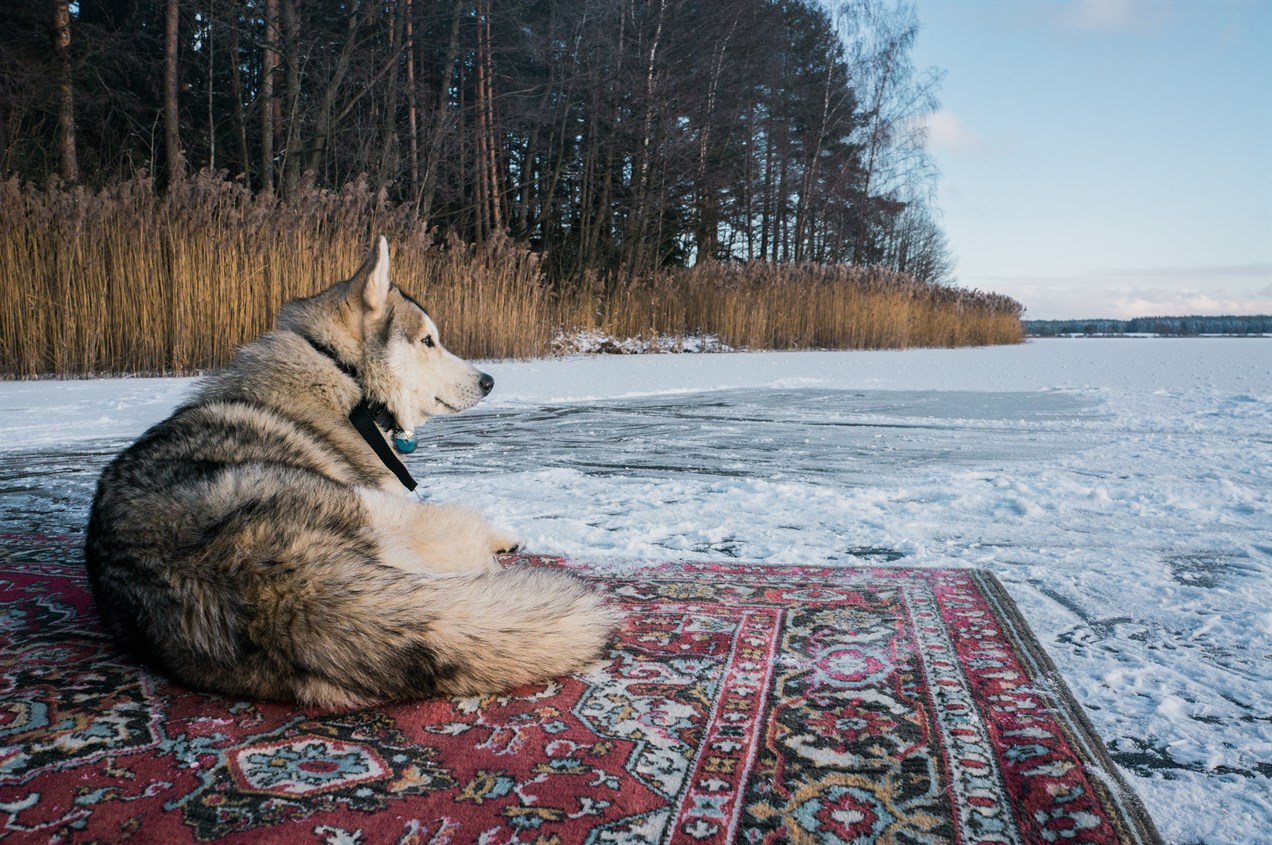Sleeping Requirements and Sleeping Habits of the Alaskan Malamute

Alaskan Malamutes, like all dogs, have specific sleeping requirements and habits that are influenced by their age, activity level, and environment. Understanding their needs can help ensure they get restful sleep and remain happy and healthy. Let's delve into the sleeping requirements and habits of the Alaskan Malamute.
Age-Dependant Sleep
Like most puppies, young Malamutes need more sleep than adults. Puppies can sleep for as much as 18-20 hours a day, interspersed with short bursts of play and exploration. As they grow, their sleep patterns gradually shift to match those of adult dogs.
Adult Sleep Patterns
Adult Alaskan Malamutes typically sleep around 12-14 hours a day. However, the quality of their sleep can be influenced by their activity level. If they receive sufficient exercise and mental stimulation during the day, they are more likely to have restful sleep at night.
Daytime Naps
Malamutes may take short daytime naps, especially after periods of activity. Providing a comfortable and quiet space for them to nap during the day is essential. Ensure they have a cosy bed or resting place where they can relax undisturbed.
Nighttime Sleep
Malamutes are known for being adaptable sleepers, meaning they can adjust their sleep patterns to match their owners' schedules. However, they tend to be most active during the cooler parts of the day and may be more alert in the evening and early morning. Ensuring they get adequate sleep at night often requires providing a comfortable and dark sleeping area free from distractions.
Comfortable Sleeping Space
Malamutes appreciate a comfortable sleeping environment. Provide them with a cosy, well-padded bed or crate where they can rest. Some Malamutes may even enjoy sleeping on cool surfaces, such as tile or hardwood floors, during warmer weather.
Sleep Disturbances
Factors like noise, light, or changes in routine can disturb a Malamute's sleep. They may become alert and bark at unusual sounds or disruptions. To promote restful sleep, create a peaceful sleeping environment and avoid disturbing their rest unnecessarily.
Health and Age Considerations
As Malamutes age, their sleeping habits may change. Senior Malamutes may require more sleep and may be less active during the day. It's essential to monitor their sleep patterns and make adjustments to their routine and sleeping area as needed to accommodate their changing needs.
In summary, Alaskan Malamutes have sleep patterns similar to those of most dogs, with variations based on their age, activity level, and living environment. Providing a comfortable and peaceful sleeping space, ensuring they get sufficient exercise, and maintaining a consistent routine can help ensure that your Malamute gets the restful sleep necessary for their physical and mental well-being.
Alaskan Malamute puppies for sale
- Find Alaskan Malamute puppies for sale in ACT
- Find Alaskan Malamute puppies for sale in NSW
- Find Alaskan Malamute puppies for sale in NT
- Find Alaskan Malamute puppies for sale in QLD
- Find Alaskan Malamute puppies for sale in SA
- Find Alaskan Malamute puppies for sale in TAS
- Find Alaskan Malamute puppies for sale in VIC
- Find Alaskan Malamute puppies for sale in WA